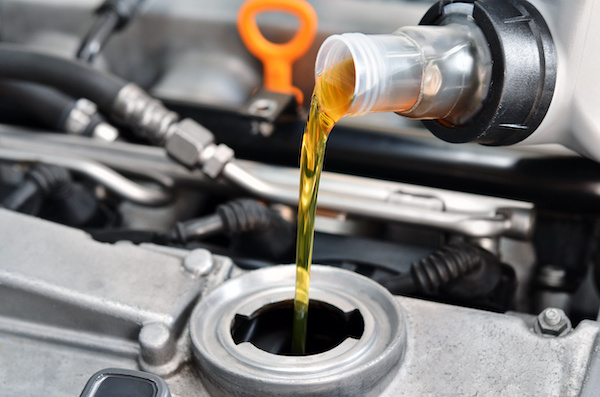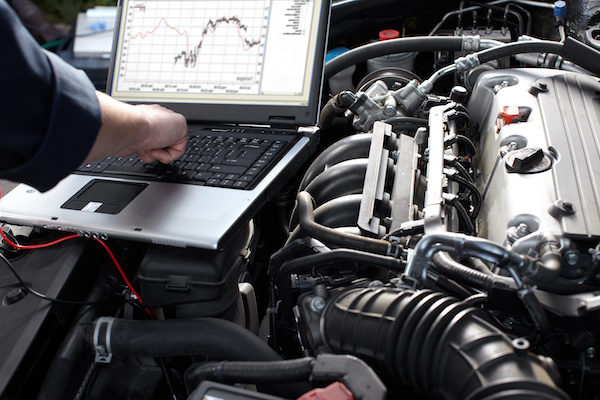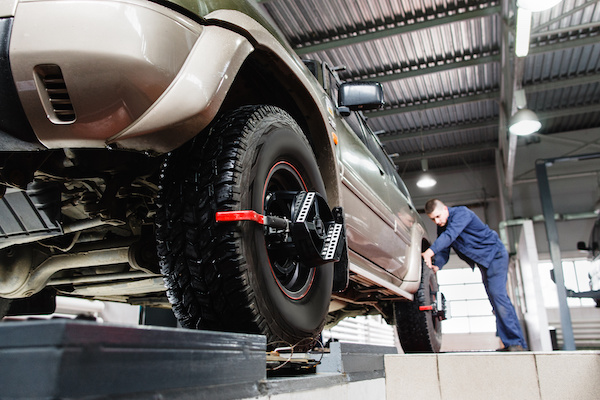Posted on 5/30/2023

One crucial aspect of engine care is regular oil changes. While many car owners know this task's importance, there needs to be clarity about how often it should be done. The frequency of oil changes depends on various factors, including your driving habits, vehicle make/model, and the type of oil you use. Understanding these factors can help you optimize your engine's performance and extend its lifespan. Let's explore how often you should get an oil change! Consult your vehicle's manual: Your vehicle's manual is a valuable resource that provides manufacturer-recommended guidelines for oil changes. It takes into account the specific requirements of your engine. Follow the mileage interval: Most manufacturers recommend an oil change every 5,000 to 7,500 miles, depending on the type of oil used. Conventional oil typically requires more frequent changes, while synthetic oil can last longer (up to 10,000 miles) due to its superior properties. Consider your driving con ... read more
Posted on 4/30/2023

As motorists, you want to make sure you're doing everything right to keep your vehicle in top shape. We understand that no driver is perfect. However, some common mistakes are being made everyday unknowingly. Here are some common mistakes drivers make that they probably aren't even aware of: Riding the Brakes One of the most common mistakes drivers make is riding the brakes. This is especially true when driving down hills. When you constantly apply the brakes, it can cause overheating, and the brake pads can wear out faster than they should. Ignoring Warning Lights Your vehicle has warning lights for a reason. If a warning light comes on, it's best not to ignore it. Ignoring warning lights can lead to more significant and costly problems down the road. Not Checking Tire Pressure Maintaining the proper tire pressure is essential for your vehicle's overall performance and fuel efficiency. Underinflated tires can lead to premature wear and tear on yo ... read more
Posted on 3/29/2023

Gone are the days when auto mechanics had to rely solely on their experience and intuition to diagnose car problems. Today, modern vehicles come equipped with computer systems that monitor and control various aspects of their operation. These systems produce a wealth of information that can be accessed through computer diagnostics. Here is a guide on what computer diagnostics can do for your vehicle. What is Computer Diagnostics? Computer diagnostics are a set of tools and software that enable auto mechanics to communicate with a vehicle's onboard computer system. These tools can read and interpret diagnostic trouble codes (DTCs) generated by the computer system, which help identify the root cause of a problem. What Can Computer Diagnostics Do? Identify Problems: The primary function of computer diagnostics is to identify problems with your vehicle. The diagnostic tool can read DTCs and provide a detailed report on any issues with your vehicle's engine, tr ... read more
Posted on 2/27/2023

As a responsible car owner, you know that proper maintenance is important to keep your vehicle running smoothly. One crucial aspect of car maintenance is getting a wheel alignment. It is necessary to have your wheels aligned to prevent uneven tire wear, improve vehicle handling, and ensure your car's safety. Here are some signs that mean you need a wheel alignment. Sign #1: Uneven Tire Wear Uneven tire wear is an evident sign that your wheels need to be aligned. Look for signs of wear on the inside or outside of the tire treads. Uneven tire wear can also indicate other problems with your car, such as worn suspension components. Sign #2: Car Pulls to One Side If your vehicle veers in one direction while trying to drive straight, it is a strong indication that your wheels are misaligned. This can be a serious safety concern, particularly when driving on wet or slippery roads. Sign #3: Steering Wheel Off-Center If your steering wheel is off-centered when drivi ... read more
Posted on 1/30/2023

If you care about your vehicle’s safety, then the brake system should be at the top of your auto maintenance checklist. Aside from having to replace your brake pads on time, one vital part of brake maintenance is fluid service. Brake fluid is responsible for creating the necessary pressure to slow down and stop your vehicle. Over time, this clear fluid can be contaminated and absorb moisture, making your vehicle lose its brake effectiveness. If you do not service your brake fluid, you may notice some dangerous signs. What Is a Brake Fluid Flush? The process of a fluid flush involves completely draining out the old brake fluid and adding new and clean brake fluid to the master cylinder. Most entities in the automotive industry recommend flushing fluid every 30,000 miles or every several years. You can also tell by visually inspecting the fluid under the hood. The fluid will appear dirty or darker than usual. During a fluid flush, your technician may also check for ... read more